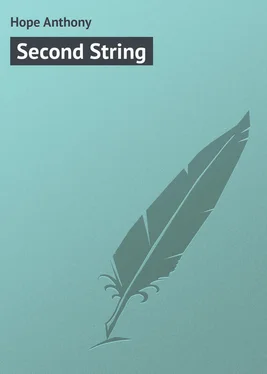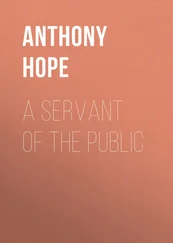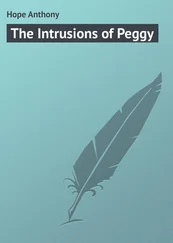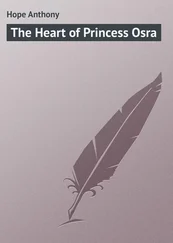Anthony Hope - Second String
Здесь есть возможность читать онлайн «Anthony Hope - Second String» — ознакомительный отрывок электронной книги совершенно бесплатно, а после прочтения отрывка купить полную версию. В некоторых случаях можно слушать аудио, скачать через торрент в формате fb2 и присутствует краткое содержание. Жанр: foreign_prose, на английском языке. Описание произведения, (предисловие) а так же отзывы посетителей доступны на портале библиотеки ЛибКат.
- Название:Second String
- Автор:
- Жанр:
- Год:неизвестен
- ISBN:нет данных
- Рейтинг книги:3 / 5. Голосов: 1
-
Избранное:Добавить в избранное
- Отзывы:
-
Ваша оценка:
- 60
- 1
- 2
- 3
- 4
- 5
Second String: краткое содержание, описание и аннотация
Предлагаем к чтению аннотацию, описание, краткое содержание или предисловие (зависит от того, что написал сам автор книги «Second String»). Если вы не нашли необходимую информацию о книге — напишите в комментариях, мы постараемся отыскать её.
Second String — читать онлайн ознакомительный отрывок
Ниже представлен текст книги, разбитый по страницам. Система сохранения места последней прочитанной страницы, позволяет с удобством читать онлайн бесплатно книгу «Second String», без необходимости каждый раз заново искать на чём Вы остановились. Поставьте закладку, и сможете в любой момент перейти на страницу, на которой закончили чтение.
Интервал:
Закладка:
Andy caught his hand across the table. "Dear old Jack, how splendid of you!"
"Well, lad?"
For the life of him Andy could say nothing more adequate, nothing less disappointing, less ungrateful, than "I'd like to think it over. And thanks, Jack!"
Chapter VII
ENTERING FOR THE RACE
Andy Hayes had never supposed that he would be the victim of a problem, or exposed to the necessity of a momentous choice. Life had hitherto been very simple to him – doing his work, taking his pay, spending the money frugally and to the best advantage, sparing a small percentage for the Savings Bank, and reconciling with this programme the keen enjoyment of such leisure hours as fell to his lot. A reasonable, wholesome, manageable scheme of life! Or, rather, not a scheme at all – Andy was no schemer. That was the way life came – the way an average man saw it and accepted it. From first to last he never lost the conception of himself as an average man, having his capabilities, yet strictly conditioned by the limits of the practicable; free in his soul, by no means perfectly free in his activities. Andy never thought in terms of "environment" or such big words, but he always had a strong sense of what a fellow like himself could expect; the two phrases may, perhaps, come to much the same thing.
In South Africa he had achieved his sergeant's stripes – not a commission, nor the Victoria Cross, nor anything brilliant. In Canada he had not become a millionaire, nor even a prosperous man or a dashing speculator; he had been thought a capable young fellow, who would, perhaps, be equal to developing the English side of the business. Andy might be justified in holding himself no fool: he had no ground for higher claims, no warrant for anything like ambition.
Thus unaccustomed to problems, he had expected to toss uneasily (he had read of many heroes who "tossed uneasily") on his bed all night through. Lawn-tennis and a good dinner saved him from that romantic but uncomfortable ordeal; he slept profoundly till eight-thirty. Just before he was called – probably between his landlady's knock and her remark that it was eight-fifteen (she was late herself) – he had a brief vivid dream of selling a very red joint of beef to a very pallid Vivien Wellgood – a fantastic freak of the imagination which could have nothing to do with the grave matter in hand.
Yet, on the top of this, as he lay abed awhile in the leisure of Sunday morning, with no train to catch, he remembered his father's B.A. Oxon; he recalled his mother's unvarying designation of old Jack as "the butcher;" he recollected Nancy's pride in marrying "out of her class" – it had been her own phrase, sometimes in boast, sometimes in apology. Though Nancy had a dowry of a hundred pounds a year – charged on the business, and now returned to Jack Rock since Nancy left no children – she never forgot that she had married out of her class. And into his father's? And into his own? "I'm a snob!" groaned Andy.
He grew a little drowsy again, and in his drowsiness again played tennis at Nutley, again dined at Halton, again saw Vivien in the butcher's shop, and again was told by Mr. Belfield not to undervalue himself. But is to take nigh on five hundred pounds a year to undervalue yourself – you who are making a precarious two? And where lies the difference between selling wood and selling meat – wood from Canada and meat in Meriton? Andy's broad conception of the world told him that there was none; his narrow observation of the same sphere convinced him that the difference was, in its practical bearings, considerable. Nay, confine yourself to meat alone: was there no difference between importing cargoes of that questionable "chilled" article and disposing of joints of unquestionable "home-bred" over the counter? All the argument was for the home-bred. But to sell the home-bred joints one wore a blue apron and carried a knife and a steel – or, at all events, smacked of doing these things; whereas the wholesale cargoes of "chilled" involved no such implements or associations. Once again, Canada was Canada, New Zealand New Zealand, Meriton Meriton. With these considerations mingled two pictures – dinner at Halton, and Jack Rock's convivial party.
"I'll get up," said Andy, too sore beset by his problem to lie abed any more.
Church! The bells rang almost as soon as Andy – he had dawdled and lounged over dressing and breakfast in Sunday's beneficent leisure – was equipped for the day. In Meriton everybody went to Church, except an insignificant, tolerated, almost derided minority who frequented a very small, very ugly Methodist chapel in a by-street – for towns like Meriton are among the best preserves of the Establishment. Andy always went to church on a Sunday morning, answering the roll-call, attending parade, accepting the fruits of his fathers' wisdom, as his custom was. "Church, and a slice of that cold beef, and then a jolly long walk!" he said to himself. He had a notion that this typical English Sunday – the relative value of whose constituents he did not, and we need not, exactly assess – might help him to settle his problem. The cold beef and the long walk made part of the day's character – the "Church" completed it. This was Andy's feeling; it is not, of course, put forward as what he ought to have felt.
So Andy went to church – in a cut-away coat and a tall hat, though it drizzled, and he would sooner have been in a felt hat, impervious to the rain. He sat just half-way down the nave, and it must be confessed that his attention wandered. He had such a very important thing to settle in this world; it would not go out of his mind, though he strove to address himself to the issues which the service suggested. He laboured under the disadvantage of not being conscious of flagrant iniquity, though he duly confessed himself a miserable offender. He looked round on the neighbours he knew so well; they were all confessing that they were miserable offenders. Andy believed it – it was in the book – but he considered most of them to be good and honest people, and he was almost glad to see that they did not look hopelessly distressed over their situation.
The First Lesson caught and chained his wandering attention. It was about David and Jonathan; it contained the beautiful lament of friend for friend, the dirge of a brotherly love. The Rector's voice was rather sing-song, but it would have needed a worse delivery to spoil the words: "How are the mighty fallen in the midst of the battle! O Jonathan, thou wast slain in thine high places! I am distressed for thee, my brother Jonathan: very pleasant hast thou been unto me; thy love for me was wonderful, passing the love of women. How are the mighty fallen and the weapons of war perished!" Thus ended the song, so rich in splendour, so charged with sorrow.
"Clinking!" was Andy's inward comment. Then in a flash came the thought, "Why, of course, I must ask Harry Belfield; he'll tell me what to do all right."
The reference of his problem to Harry ought to have disposed of it for good, and left Andy free to perform his devotions with a single mind. But it only set him wondering what Harry would decide, wondering hard and – there was no escaping from it – jealously. His service in the ranks, his residence in communities at least professedly democratic, had not made him a thorough democrat, it seemed. He might have acquired the side of democracy the easier of the two to acquire; he might be ready to call any man his equal, whatever his station or his work. He stumbled at the harder task of seeing himself, whatever his work or station, as any man's equal – at claiming or assuming, not at according, equality. And in Meriton! To claim or assume equality with any and every man in Meriton would, if he accepted Jack Rock's offer, be to court ridicule from equals and unequals all alike, and most of all from his admitted inferiors. Surely Harry would never send him to the butcher's shop? That would mean that Harry thought of him (for all his kindness) as of Chinks or of the Bird. Could he risk discovering that, after all, Harry – and Harry's friends – thought of him like that? A sore pang struck him. Had he been at Nutley – at Halton – only on sufferance? He had an idea that Harry would send him to the butcher's shop – would do the thing ever so kindly, ever so considerately, but all the same would do it. "Well, it's the safe thing, isn't it, old chap?" he fancied Harry saying; and then returning to his own high ambitions, and being thereafter very friendly – whenever he chanced to pass the shop. Andy never deceived himself as to the quality of Harry's friendship: it lay, at the most, in appreciative acceptance of unbounded affection. It was not like Jonathan's for David. Andy was content. And must not acceptance, after all, breed some return? For whatever return came he was grateful. In this sphere there was no room even for theories of equality, let alone for its practice.
Читать дальшеИнтервал:
Закладка:
Похожие книги на «Second String»
Представляем Вашему вниманию похожие книги на «Second String» списком для выбора. Мы отобрали схожую по названию и смыслу литературу в надежде предоставить читателям больше вариантов отыскать новые, интересные, ещё непрочитанные произведения.
Обсуждение, отзывы о книге «Second String» и просто собственные мнения читателей. Оставьте ваши комментарии, напишите, что Вы думаете о произведении, его смысле или главных героях. Укажите что конкретно понравилось, а что нет, и почему Вы так считаете.












